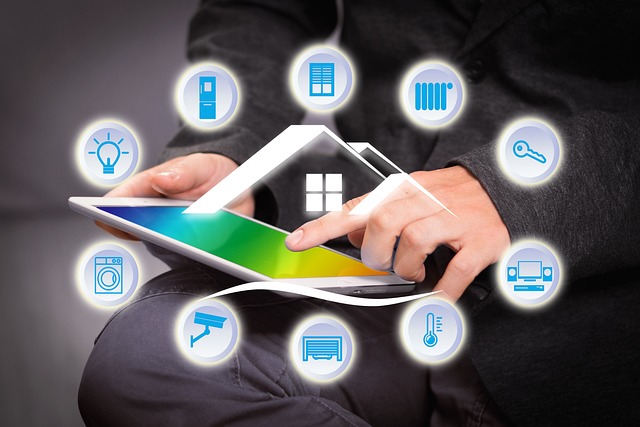In the age of smart technology and interconnected devices, the home automation industry is booming.
More and more homeowners are seeking to enhance their living spaces with smart solutions that improve convenience, security, and energy efficiency.
This growing demand presents a golden opportunity for entrepreneurs to start a home automation business.
1. Unlocking Opportunities in the Booming Home Automation Industry
Begin by conducting thorough market research. Understand the current trends in home automation, identify your target audience, and study your competitors.
This will provide valuable insights into what customers are looking for and how you can differentiate your business.
2. Crafting a Solid Business Plan for Your Home Automation Venture
Develop a comprehensive business plan outlining your business goals, strategies, and financial projections.
A well-structured plan will serve as a roadmap for your business and help secure funding if needed.
3. Navigating Legalities: Starting Your Home Automation Business Right
Register your home automation business and comply with all legal requirements, including obtaining necessary permits and licenses.
Consult with a legal professional to ensure you’re meeting all local and national regulations.
4. Mastering Home Automation Technologies: Skills and Training Essentials
Acquire the necessary skills and training in home automation technologies.
Stay up-to-date with the latest advancements in smart home systems, including lighting, security, HVAC, and entertainment systems.
5. Boosting Credibility: Certifications for Your Home Automation Business
Consider obtaining relevant certifications from industry organizations or manufacturers.
Certifications can boost your credibility and reassure customers of your expertise.
6. Supplier Collaboration: Building Strong Partnerships for Success
Establish strong relationships with suppliers and manufacturers of home automation products.
Reliable suppliers are essential to ensure you have access to quality products and timely deliveries.
7. Beyond Installation: Defining Your Comprehensive Home Automation Services
Define the range of services you’ll offer. This might include system design, installation, maintenance, and troubleshooting.
Offering a comprehensive suite of services can set you apart from competitors.
8. Strategic Marketing: Promoting Your Home Automation Business Effectively
Develop a robust marketing strategy to promote your home automation business. Utilize digital marketing, social media, and local advertising to reach your target audience.
Highlight the benefits of home automation, such as energy savings, convenience, and enhanced security.
9. Analyzing the Market: Studying Competitors and Industry Leaders
You have to make a list of companies that offer home automation and study their market coverage, brand positioning, product technicality, and price structure.
10. Empowering Customers: Educating on the Benefits of Home Automation
Educate your customers about the benefits and capabilities of home automation systems.
Host workshops or webinars, create informative blog content, and provide excellent customer support to address their questions and concerns.
11. Networking for Success: Building Partnerships in the Home Automation Industry
Build a network of contacts within the home automation industry.
Collaborate with contractors, architects, and real estate agents to expand your reach.
Partnerships can lead to referrals and new business opportunities.
12. Customer-Centric Approach: Ensuring Satisfaction in Home Automation
Focus on delivering exceptional customer service and ensuring customer satisfaction.
Happy customers are more likely to refer your services to others and become repeat clients.
13. Scaling Up: Growing Your Home Automation Business and Diversifying
As your business grows, consider scaling your operations and diversifying your offerings.
You might explore commercial installations, and smart building solutions, or expand into adjacent markets like home security or energy management.
14. Staying Ahead: Keeping Abreast of Emerging Trends in Home Automation
The home automation industry is dynamic, with new technologies emerging regularly.
Stay informed about these developments to adapt your business and offer the latest solutions to your customers.
15. Feedback Loop: Continuous Improvement for Your Home Automation Venture
Continuously seek feedback from customers and employees. Use this feedback to make improvements to your business processes, customer service, and product offerings.
Remember that building a reputation for quality, reliability, and innovation will be key to long-term success in the home automation market.
Frequently ask questions
A. What is the best way to promote the Home automation business?
As per my professional experience in the home automation business, we should promote home automation products through architects, interior designers, social media, referral links, and viral videos of our works.
B. Is a home automation business profitable?
Yes sure, I have more than 5 years of experience in the home automation business and I assure you all about the great profit margin in this product.
Application-based sales always create a loyal customer base and freedom to charge prices including on products and after-sales service.
C. What is the profit margin on home automation?
There is more than a 15% profit margin in this business and every company is practically accurate in solving the customer’s issues and giving customized solutions.
D. What is the disadvantage of home automation?
In my opinion disadvantages in the home automation business are time-consuming in sales, complexity, customization, privacy and security concerns, and maintenance and updates.
E. Why invest in home automation?
Invest in home automation for convenience, energy savings, enhanced security, and modern living. It adds comfort, efficiency, and control to your home while potentially increasing its value.
F. Is home automation a good investment?
Home automation can be a good investment for those seeking convenience, energy efficiency, security, and a modern lifestyle. However, it depends on individual needs, budget, and willingness to adapt.







